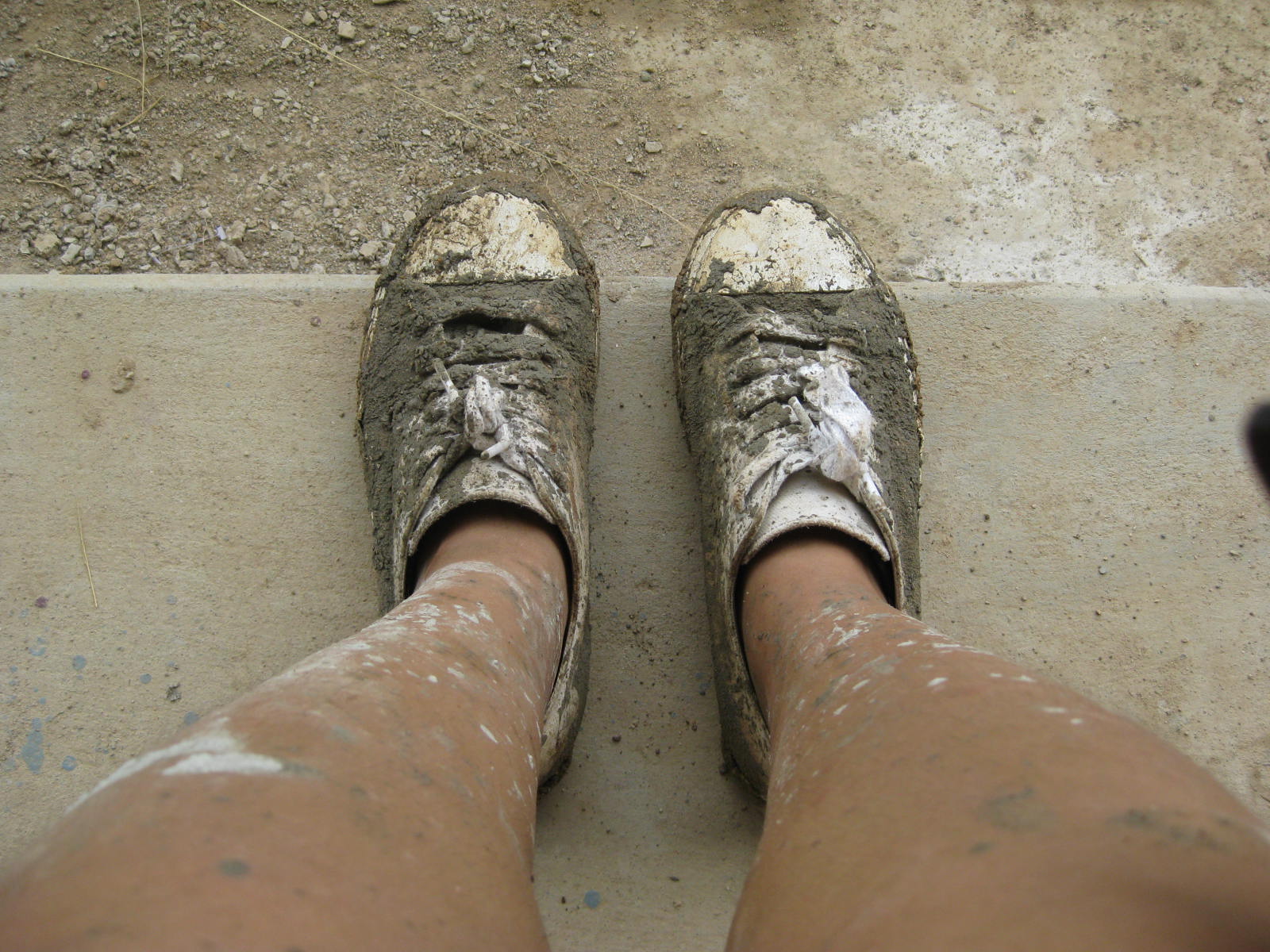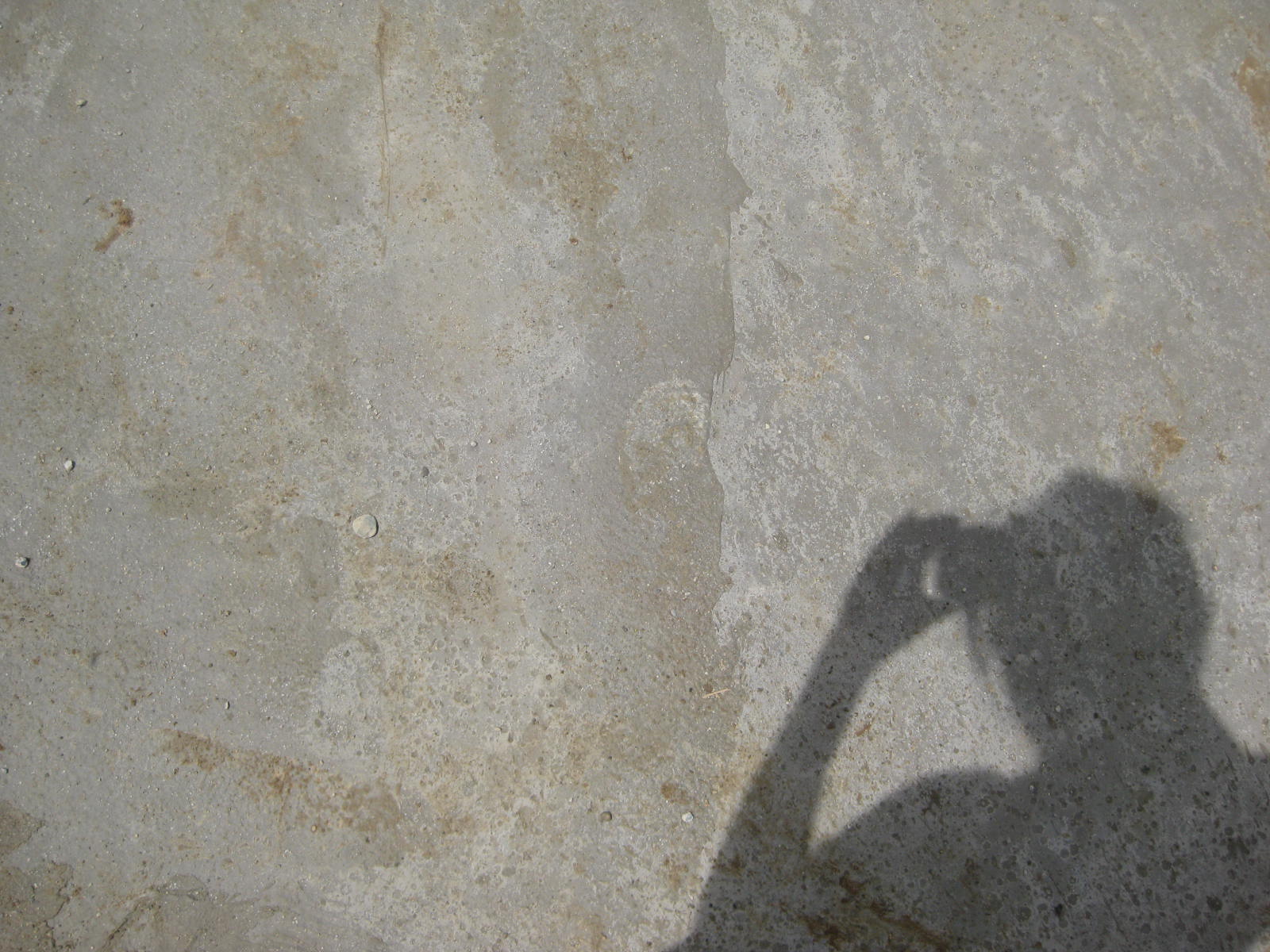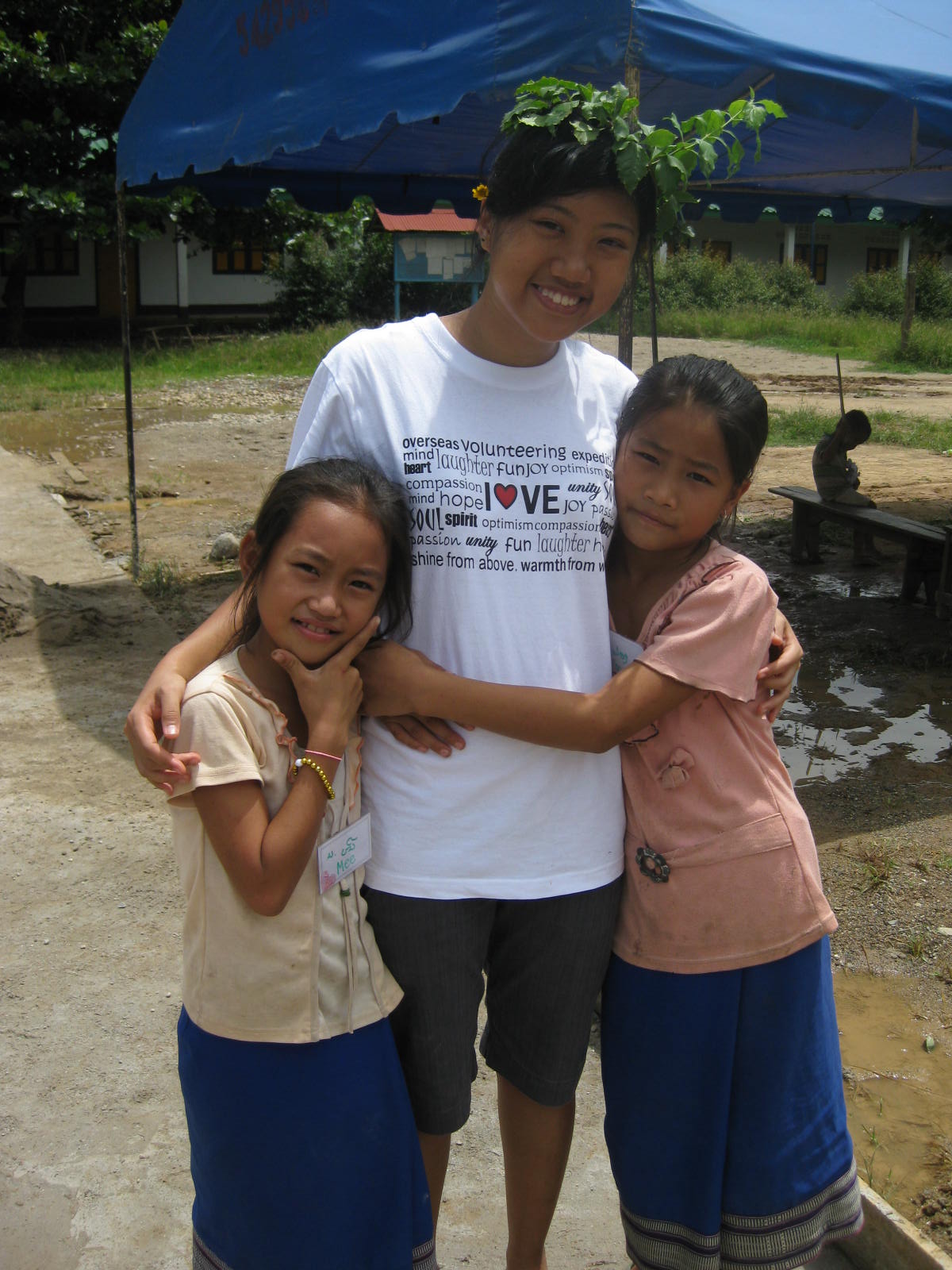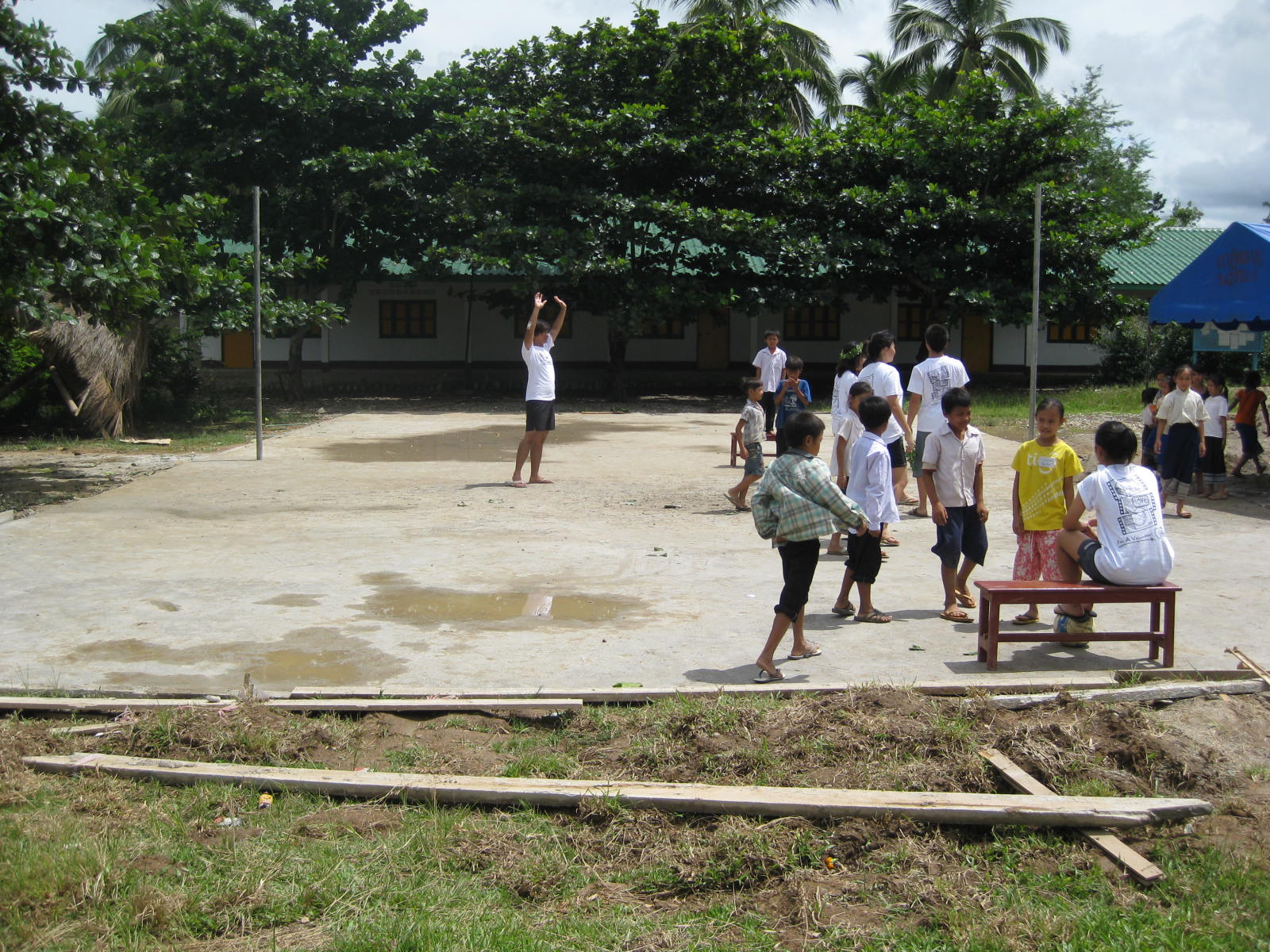During our 14 days in Laos, we stayed for two nights at the villager’s house. Apart from the influx of mosquitoes and the fact that it was very hot (and I did not bring my insect repellant and Tiger Balm), it was a relatively comfortable stay. Bathing facilities were fine. The house we stayed in had two toilets with concrete tanks filled with fresh cold water so crystal clear, I could see fish swimming at the bottom. It was nice to brush teeth with such fresh cold water and fish (ok, I am weird).
If I had brought my Tiger Balm and insect repellant, I would definitely have stayed there for more days.
The house is inhabited by two old people, a husband and wife. The TV is always on. They receive programs from China, Thailand, apart from their local programmes. They are addicted to a Thai show at 9pm. It reminds me of a Taiwan drama series my mum loves to watch.
The owners’ son is the third important person in the village of Ban Xieng Lom. There are many villages in a city, and cities in a province. We were staying in Ban Xieng Lom village, in the city of Luang Prabang, in the province of Luang Prabang. Let’s just say, the Luang Prabang province also has other cities.
Each village has a village head, who is elected based on popularity. He would settle all the internal affairs with the government officials, including internal disputes. For almost every community event, he has to be present (pretty much like a Member of Parliament in Singapore). When we came to help out in the school located near the village, he was present at times and helped with the construction of the recreation court by smoothing out the liquid concrete with a wooden plank.
The third important person is a farmer. His son is called Mat-Ni, and is an intelligent boy in my class. He wears a gold chain around his neck.
At the storeroom of the house is many sacks of rice emanating subtle fragrance as we step into the room. “These sacks of rice are to be sold to the big supplier from the city,” Mat-Ni said. The money he gets is quite little I recall, (about SGD1.26 for a kilogram of rice) Although he owns the land, he still has to pay high land taxes to the government.
The next day, we try out planting rice on their land. I am bad at it because I can’t pin down the saplings in a straight line. Thankfully, the villagers are nice and patient. The farmer’s land is also huge (in my opinion).
“Life is better now”, according to the Singaporean coordinator for our trip who speaks fluent Lao, Sir Liang, he tells us that life in Ban Xieng Lom has improved after the opening of the Elephant Village less than 1 kilometer away.
“Many villagers went there to work. With the tourism dollar, they have a better life now.”
The Elephant Village is really beautiful. I have never come so close up to elephants. Many locals are employed there. The waiters, the Mahouts (Elephant riders) and the Boatmen. Tourism has indeed helped to change lives.
Education of children is affordable. Pre-school education cost 40,000 kip (SGD52) a year. Primary education is 50,000 kip (SGD65) and Secondary Education is 60,000 kip (SGD78). Still not all children can afford to go to school. There is disparity in the village, my friend observes. There are children who change their clothes everyday, while some don’t. They have dirt streaks on their faces, and their wounds are open.
I honestly have failed to notice those. I guess maybe India has made me quite immune to the dirt and wounds of children. Perhaps it is so common that it has become the norm, or maybe because I have seen worse, dirtier children, with flies around them, bony kids with fierce empty eyes. Or maybe, some part of me has just accepted that not bathing for two days is quite a normal way of life.
Primary and secondary education may be affordable, but university education is highly priced. It costs 60,000 kip per semester (SGD78), which is about six months. “It is a lot,” sir Liang tells us. A government official earns SGD65 per year.
Having a degree has its benefits. Sir Liang’s son is now studying English at the Teacher’s Training College in Luang Prabang and has gone on to serve the army for three months. He is 22 years old, wearing army trousers and a black singlet. He looks quite plump, unlike his father, who is thin and dark. He speaks to us in English.
I hand them a book with photographs of Singapore. While looking through the book, the farmer pauses at the pictures of our HDB flats. Sir Liang explains that these are houses we live in.
When they are building houses, family members from all over gather together to help them. The coordinator of the trip, who runs some guesthouses in Luang Prabang tells us that sometimes these workers disappear without a word. When they come back, they tell him that they have gone back to their villages to help to build houses.
The houses are really quite beautiful. When I look at the passing houses along the streets of Luang Prabang, I feel a twitch in my heart.
Construction
Unlike Singapore, the cement used to build the recreation court for the primary school was a mixture of fine soil, cement, water and stones. This can help them save the amount of cement used.
I never knew how tiring cementing a place could be. Lifting the heavy buckets of stones and passing them through a human chain. Attempting to shovel stones and sand into the buckets gives a whole new meaning to the word “back-breaking.”
But the most difficult of all was shovelling the ground to get rid of plants. The roots were strong, and whacking the ground to pluck them out was difficult.
I think I can understand how construction workers feel. When I see piles of sand and stones by the roadside. I am thankful for cement mixers in Singapore. And I am thankful that my primary school basketball court was provided for, using 100% pure cement. I did not have to worry about cement chipping off or stones popping out after wear and tear.
I am glad we did the court. Day by day, as I look at my cemented shoes, my tan brown skin and bruises and cuts that I got from the whole week of construction work, and when I see the cemented patches being filled, moving closer to me, a sense of accomplishment fills my heart. Now, the children can run, without the fear of slipping now in their muddy fields with sandflies. No more bites, no more splinters.
I am sure the villagers could have done it much faster and better than us. I guess, it is because we came, and sweated along with them, and carried the load they had together, that made it all special, and made them want to finish this project.
That was the most meaningful things I did for the trip. (Drinking two bottles of Lao beer, and revealing my politically incorrect self to others was the next best thing.)
I am happy to have gone to Laos, despite my many disillusionments. Maybe, it’s just a tweak of perceptions, being open, and adjustments. Each new experience teaches us something. All we have to do, is to open the eyes, and the mind and appreciate what we have.
The uneven concrete floor, you can see some sand!
The kids, the concrete floor in the background
Playing on the concrete ground, the concrete is before touch-up, so it looks uneven.
The Owner of the house we stayed in. He likes to watch the world.
The wooden house we stayed in
Elephant Village, tourist spot
The mahout
Chasing wheels
Contributed by The Travelling Squid.














